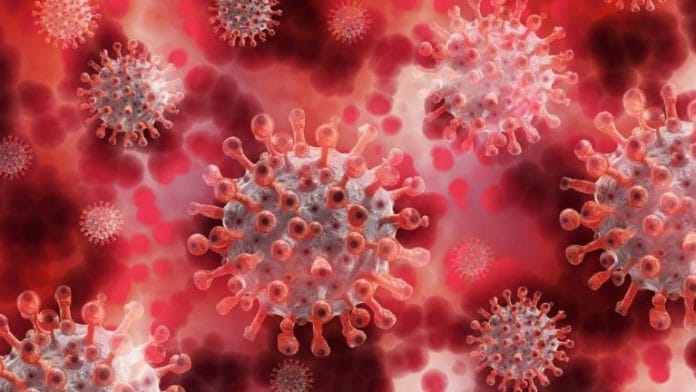A recent study out of the U.K. showing declining antibodies in people who had been infected with Covid-19 has gained attention, stoking fears that acquired immunity from exposure to the virus may not last. There are many things to worry about when it comes to the novel coronavirus. This isn’t one of them, at least not yet, and it’s important to understand why.
First, an immunology primer. After we encounter a new infection, several different cells that are distributed throughout the body — especially in areas often exposed to the external environment such as the skin and surfaces of our lungs and intestines — either directly attack the pathogen or sound a chemical alert system. This is what’s known as our innate immune system, and it is the first line of defense against infections.
The second line of defense, the adaptive immune system, picks up the alert sent out by the innate system and produces antibodies to invading pathogens. The antibodies do mainly two things: They bind to pathogens so immune cells can “see” them and kill them. They also can attach to the specific parts of a pathogen that allow it to enter human cells and thereby neutralize it. Aside from antibodies, there is another arm of the adaptive immune system that is involved in limiting infections: the T-cell. Basically these cells’ job is to kill cells that the virus has managed to infect after somehow bypassing antibodies.
When it comes to Covid-19, several studies show that antibody levels in patients who suffered a severe case and survived remain at an easily detectable level for up to four months after the infection. This is the point at which most studies have so far ended. What raised concern this week was research from Imperial College London, which reported a precipitous drop between June and September in the number of people testing positive for these antibodies. The fear is that this means the body’s ability to mount an immune response to Covid-19 wanes. But the decline can be explained easily enough: That’s how it’s supposed to work.
Once the human body has cleared an infection, it doesn’t need to continue to produce antibodies at high levels, so these decline over time. If we continued to make large amounts of antibodies in response to each of the thousands of pathogens that we have encountered, our blood and tissues would be clogged with unnecessary antibodies. The whole point of the adaptive immune system is to first produce many antibodies to clear a pathogen, and then to form a “memory” so that the next time the same infection comes around it can respond more quickly and prevent disease. A drop in antibodies, then, isn’t necessarily a worry on its own. What is more important, and what we don’t know yet, is whether infected people form immune memory that helps them crank out new antibodies should the virus reappear.
And I have other worries. One is that the virus appears able to dampen or evade the innate and adaptive immune response in some people. That response already loses steam as we age, which is one explanation as to why the disease is so much worse in the elderly. Scientists have even found individuals who have defects in the key chemical alerting system, called type-1 interferon, whose chances of getting severe Covid-19 disease is much higher than others. The virus also seems to have the ability to prevent the formation of specialized structures in our immune system where adaptive immunity is fine-tuned and immune memory cells are formed (in medical jargon they are called ‘germinal centers’ and form in lymph nodes). This means we may end up with a blunted antibody response, one that is too little or late to stop the development of the disease, or limited immune-system memory.
As I wrote last week, we do see cases of reinfections, and although these have so far been very rare, we will likely see more of them. Until we know more about how this virus impacts our longer-term immunity, we need to continue to reduce the risks of disease with better hygiene, masks and social distancing. Fading antibodies have also prompted concern that vaccines might falter. On the contrary, vaccines can induce durable immunity without being shackled by the virus’s ability to dampen the immune response. We have several examples of infections which the human body cannot always clear on its own that can be prevented by vaccines. These include Merck & Co.’s Gardasil for human papilloma infections and GlaxoSmithKline’s Shingrix for shingles.
Bottom line: Falling antibodies after an infection are not cause for alarm — it is a natural phenomenon. They also don’t mean vaccine efforts are doomed. What we need to know is whether infections produce good “memories” and if, and how well, vaccines against the virus can protect us. – Bloomberg
Also read: Covid-19 vaccine won’t be available until January, Anthony Fauci says






